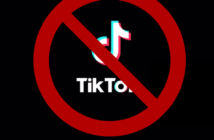By Lester Williams Jr, Contributing Writer
The meaning of free speech, to put it simply, is a human’s ability to be able to share their ideas, opinions, and experiences with the public. Historically, although this concept seems simple, freedom of speech has not truly been implemented effectively in society to make positive changes.
The origin of free speech dates as far back as the signing of the Magna Carta in England in 1215 where King John, in response to a rebellion, signed a document to declare the rights for both noblemen and regular people. In America, the origin of free speech dates to 1641 in Massachusetts where the First Amendment was approved.
The First Amendment is a vital part in the history of free speech because it ensures that the people living in the United States obtained their freedom of expression and were given the right to start petitions. It also included information about the due process which is used to ensure that U.S. citizens would be respected by the government.
As time goes on, more people are given the option to tell their story to make the public more aware of the challenges they are facing. It is thanks to free speech that the USA has constructed a society that puts more focus on equality and positive representation.
Free speech is a vital resource because it is a basic human right which is used to help improve society. Without free speech, countries like America would be a harder environment to live in because people would not have access to the same rights and segregation would be widespread across the country.
Although current generations living in the United States have not lived with the harsh suppression compared to older generations, that does not mean that they should forget the sacrifices made to give them the freedom they have today.
Let us not forget when Martin Luther King, an African American civil rights leader, gave his ‘I Have a Dream Speech’ in 1963 at Washington, D.C’s Lincoln Memorial. People like King are still celebrated because they demonstrate the power of free speech.
Before people like King took center stage, racial segregation of African Americans was widespread across America. One site even claimed that from the 1880s into the 1960s, a majority of American states enforced segregation through Jim Crow laws.
Racial segregation may not be on the minds of every U.S. citizen today; however, it is vital that everyone recalls how activist use free speech to fight for racial equality. According to the Cato Institute, “racism is an age‐old problem,” meaning that it is a struggle that will affect all generations.
When asked to discuss freedom of expression, Francis Orlando, a political science instructor at Saint Leo University, said “The idea of unrestricted freedom to say whatever one likes is being challenged on a lot of different fronts. For example, should speech deemed hateful continue to be protected by the First Amendment?”
To add to his response, Orlando also claimed, “Another huge topic deals not just with governmental restriction of speech, but restriction of speech patterns elsewhere, such as college campuses, and more universally, on social media. Should First Amendment protections apply to platforms such as Twitter or Facebook?”
Based on Orlando’s comments, the debate on the limitations of free speech will go on for several generations as technology introduces new ways for people to express themselves and governments work to alter how they define the limitations of free speech to maintain society.





